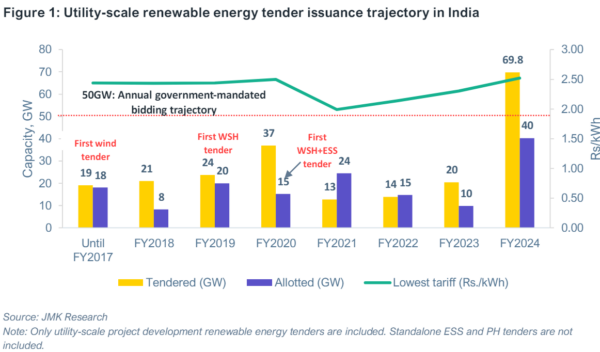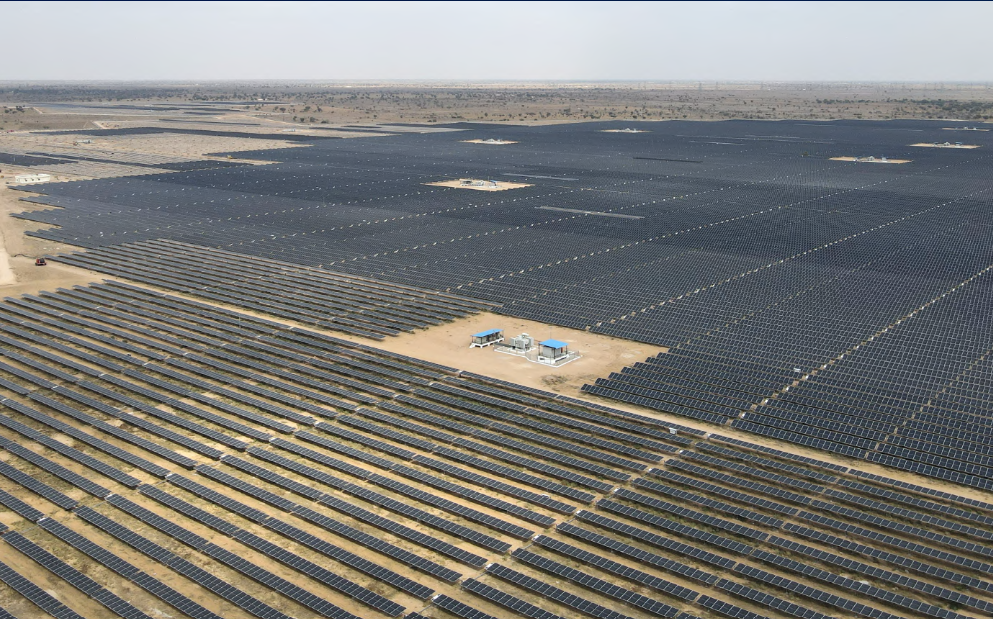From pv magazine India
Renewable energy tender issuances in India crossed a record 69 GW in fiscal 2024 due to a strong push by the central government, according to a new joint report by the Institute for Energy Economics and Financial Analysis (IEEFA) and JMK Research and Analytics.
The report said that tenders issued for utility-scale renewable energy projects in fiscal 2024 were much higher than the government’s ambitious target of 50 GW.
“After a slump from 2019 to 2022 due to supply-chain issues and global price spikes brought on by the Covid-19 pandemic and Russia’s invasion of Ukraine, the market has rebounded and gone from strength to strength,” says the report’s contributing author, Vibhuti Garg, director for South Asia at IEEFA. “There is strong investor interest in the Indian utility-scale renewable energy market. The primary reasons are the large-scale potential for market growth, central government support in terms of targets and regulatory frameworks, and higher operating margins.”

To continue reading, please visit our pv magazine India website.
This content is protected by copyright and may not be reused. If you want to cooperate with us and would like to reuse some of our content, please contact: editors@pv-magazine.com.




1 comment
By submitting this form you agree to pv magazine using your data for the purposes of publishing your comment.
Your personal data will only be disclosed or otherwise transmitted to third parties for the purposes of spam filtering or if this is necessary for technical maintenance of the website. Any other transfer to third parties will not take place unless this is justified on the basis of applicable data protection regulations or if pv magazine is legally obliged to do so.
You may revoke this consent at any time with effect for the future, in which case your personal data will be deleted immediately. Otherwise, your data will be deleted if pv magazine has processed your request or the purpose of data storage is fulfilled.
Further information on data privacy can be found in our Data Protection Policy.